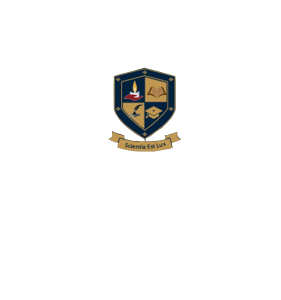Cohort Assessments
A. Overview
-
Each cohort has a unique gradebook (separate tracking).
-
Designed to meet accreditation body requirements for compliance.
B. Key Accreditation Guidance
-
ACEN Standard 4 (Curriculum): Assessments must measure achievement of end-of-program outcomes.
-
ACEN Standard 6 (Outcomes): Programs must show graduates meet licensure/NCLEX benchmarks — written exams therefore carry substantial weight.
-
NLN Competencies: Assessments must evaluate knowledge, skills, and attitudes (KSA) domains.
-
State Boards (e.g., NJ): Require documentation of clinical competency evaluation and proper weighting.
C. Assignments – 15%
-
Supports critical thinking, communication, and evidence-based practice.
-
Examples:
-
Case study write-ups
-
Clinical reflections (journal entries)
-
Care plan projects
-
D. Quizzes & Exams – Quiz 15% | Tests 30%
-
Quizzes may be unannounced to measure readiness.
-
Exams verify mastery of theoretical concepts and NCLEX readiness (strong cognitive evaluation expected).
-
Components:
-
Unit quizzes (graded)
-
Midterm & Final exams
-
NGN-style clinical judgment assessments
-
E. Clinical Performance Evaluation
Essential for demonstrating safe, competent practice (ACEN emphasizes this as central).
-
Weighting:
-
Clinical Performance (Instructor Evaluation) – 70%
-
Written Work (Logs, Care Plans, Journals) – 20%
-
Professionalism – 10%
-
-
Grading Standard:
-
≥ 77% = Satisfactory
-
< 77% = Unsatisfactory
-
Students must earn a satisfactory grade to pass courses with clinical components.
F. Skills Lab / Check-offs (Return Demonstrations)
Ensures psychomotor skill competency and alignment with program outcomes.
-
Weighting:
-
Skills Check-offs (Return Demonstrations) – 50%
-
Simulation Scenarios / OSCEs – 30%
-
Written Work (Skills Logs, Reflections) – 10%
-
Professionalism – 10%
-
Total = 100%
-
G. Participation & Professionalism
-
Includes journals, reflective practice, attendance, teamwork.
-
Reinforces affective learning domain and professional behaviors (required by accreditation standards).
H. Rubrics & Submission Portals
-
Rubrics linked to NLN & QSEN competencies.
-
Direct submission to instructors.
I. Gradebook
Cohort-Specific: Students only see their own cohort’s grading.
a. Pre-Requisite Courses
-
Quiz – 15%
-
Test – 30%
-
Assignment – 20%
-
Skills Lab – 15%
-
Final Exam – 20%
-
Vintage Course Final – 10%
-
ATI Course Mastery Exam – 10%
-
b. Core Nursing Courses
-
Quiz – 15%
-
Test – 30%
-
Assignment – 15%
-
Participation/Professionalism – 5%
-
Skills Lab – 15%
-
Final Exam – 20%
-
Vintage Course Final – 10%
-
ATI Course Mastery Exam – 10%
-
-
Clinical Evaluation – Satisfactory/Unsatisfactory
GPT Prompt for Course description
Description: use the following chat GPT prompt to create it (As an expert nurse educator consultant, create a summary of course description for PEDIATRIC NURSING of a PN program BY integrating ASEN, QSEN and NLN competencies, Blooms taxonomy of cognitive domain of NCSBN and NJ board of nursing standards. As an expert nurse educator consultant, create a summary of course description for PEDIATRIC NURSING of a PN program BY integrating ASEN, QSEN and NLN competencies, Blooms taxonomy of cognitive domain of NCSBN and NJ board of nursing standards)
The Study Hub serves as a centralized digital resource center within the Learning Management System (LMS) designed to support student learning, engagement, and success. It organizes and integrates all essential course materials, interactive tools, and academic supports in one accessible location, ensuring students can easily locate and utilize resources aligned with course and program outcomes.
Key Components of the Study Hub
-
Core Course Content
-
Lecture slides, reading materials, textbooks (digital or PDF format).
-
Recorded lectures, podcasts, and supplemental videos.
-
NCLEX-PN test plan alignment guides.
-
-
Learning Resources
-
Interactive modules: case studies, simulations, and scenario-based activities.
-
Reference links to peer-reviewed journals, evidence-based practice guidelines, and professional standards (NLN, QSEN, ACEN).
-
Glossaries and study guides tailored to PN program concepts.
-
-
Skill Development Resources
-
Skill Video demonstrations of clinical and laboratory skills.
Checklists aligned with nursing competencies.
Virtual lab practice tools and step-by-step clinical guidelines.
-
- NCLEX-PN practice questions
- UWORLD practice questions
- Vintage Practice Questions
-
Collaboration & Communication
-
Discussion forums for peer-to-peer and student-to-instructor interaction.
-
Study group spaces and breakout activities.
-
Q&A board for clarifying course or clinical content.
-
-
Academic Support Tools
-
Access to e-library databases and evidence-based practice repositories.
-
Writing support, citation guides, and APA/MLA resources.
-
Time management and study skills resources.
-
-
Feedback & Progress Tracking
-
Gradebook linked to cohort performance.
-
Progress dashboards showing completion of modules and quizzes.
-
Instructor feedback on assignments and clinical evaluations.
-
Purpose of the Study Hub
-
Ensures equitable access to resources across all cohorts.
-
Promotes self-directed learning and critical thinking.
-
Integrates technology-enhanced learning (simulations, quizzes, EHR demos).
-
Facilitates continuous feedback and improvement for both students and faculty.
-
Provides a one-stop academic hub to reduce student confusion and improve learning outcomes.
